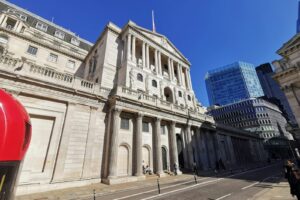The ONS has reported today that UK CPI inflation came in hotter than expected at 3.6% in June, up from 3.4% last month,with sticky services inflation and rising labour costs making it harder for the Bank of England to justify aggressive rate cuts.
Below, leading commentators from Charles Stanley, Quilter, Evelyn Partners, and others outline what they see as the key implications for financial advisers and their clients as a result of these data from the ONS today as follows:
The economic outlook still remains unclear according to Rob Morgan, Chief Investment Analyst at Charles Stanley, as he lays out what he believes these latest data mean for clients’ finances as follows:
“UK inflation is broadly moderating but there are significant crosscurrents muddying the waters. Despite lingering stubbornness in price rises the Bank of England seem inclined to take heed of a rapidly weakening jobs market and lower interest rates in August, but further cuts may be harder to justify.
“CPI came in at 3.6% in June, up from from 3.4% in May with core inflation quite a bit higher at 3.7% in June compared with 3.5% in May.
“Perhaps more importantly, annual services inflation stayed at 4.7% despite many forecasting it would fall back. This is a key metric to watch as it is driving the overall headline number and is highly sensitive to employment costs which have recently been on the rise.
“Overall, it’s unwelcome news to households being squeezed on essential spending, and could limit the extent the Bank of England can cut interest rates to provide relief to borrowers.
How quickly will inflation recede?
“Labour market data suggests the UK economy is now starting to struggle. A slowdown would ordinarily suppress inflation, but still-high wage inflation is muddying the waters. That metric remains inconsistent with the BoE’s 2% inflation target at around 5%, and the extra spending power in parts of the workforce is still running counter to the wider trends of economic slowdown and job losses.
“Increases in the minimum wage and payroll tax has raised total labour costs and many businesses are passing these onto consumers. This is likely to keep inflation significantly over 3% for the rest of the year, making it difficult for the BoE to cut interest rates aggressively.
“To add to the uncertainty, the impact of tariffs remains an unknown quantity. The erratic back-and-forth of US trade policy may lead to persistent weakness in global trade and a knock-on impact for the UK economy. At the very least the ambiguity makes it difficult for companies to plan and invest, and at worst could exacerbate economic slowdown at the same time global inflationary pressures seep into the UK.
What does it mean for interest rates?
“BoE Governor Bailey’s recent comments indicate he is open to cutting interest rates at a carefully managed pace if the jobs market continues to deteriorate.
“This seems an increasingly likely outcome as the economy moved into reverse gear during the second quarter, contracting by -0.3% in April and -0.1% in May, undoing much of the positive momentum in Q1. Meanwhile, the extent of falling payrolls will be beginning to ring alarm bells, shifting MPC members’ attention from inflation stickiness to economic weakness.
“An August cut still seems likely as the lacklustre growth picture and the deteriorating labour market come more sharply into focus, but the lingering effect of wage inflation and payroll costs could make further cuts a longer time coming.”
Sharing her reaction, Lindsay James, investment strategist at Quilter said: “Despite last night’s Mansion House speech and the desire to kickstart growth in the economy, Labour is left waking up to headlines of inflation rising again. The Consumer Price Index hit 3.6% in June, up from 3.4% the month prior, and is showing little sign of coming back down to the 2% target soon. This ramps up pressure on the government to find some wins when it comes to economic growth and making the country feel like they are better off under this administration.
“It seems we are now seeing the effects of the rise in employer national insurance contributions feeding through into prices, along with increased shipping costs hitting too. Groceries, for example, have been higher in June as a result of those increased costs and a poor harvest, the third consecutive rise. Other sectors too are also seeing an increase in prices as we hit the summer months. Fuel prices aren’t falling as fast as they did last year, while clothing prices have also risen. Ultimately, consumers are going to be feeling the pinch once again when it comes to the cost of living.
“It appears that these pressures are also going to continue into the second half of the year, making any significant rate cuts from the Bank of England difficult to envisage. That said, with the labour market slowing and economic growth proving especially elusive in recent months, it might just have no choice but to bite the bullet and cut rates sooner rather than later.
“We also saw yesterday inflation in the US begin to accelerate, potentially as a result of the tariff uncertainty that has come to dominate markets of late. The UK’s ‘trade deal’ with the US appears to have been anything but that, and any renegotiation is likely to impact prices further. While the geopolitical risks have subsided for now, the economic ones continue to blight. The challenge to get inflation back down and staying at 2% is looking increasingly fraught with danger.”
Rob Clarry, Investment Strategist at Evelyn Partners, comments: “June’s inflation print came in above expectations across the board, with the big upward contribution coming from transport. Services inflation, which represents a better gauge of domestically generated inflation than headline CPI, remained at 4.7% year-on-year, beating consensus estimates for a 4.5% rise.
“The UK continues to face stickier inflationary pressures compared with other advanced economies. This is arguably reflected in the bond market with gilts yields remaining higher than their European counterparts, despite the UK facing a similarly weak growth profile.
“This print complicates the outlook for the Monetary Policy Committee (MPC), which meets on 7th August. Although traders continue to expect two further 25 basis point interest rate cuts this year.
“The pound extended gains against the dollar following the hot CPI report.”
Abhi Chatterjee, Chief Investment Strategist, Dynamic Planner said: “Sequels are meant to be insipid – a last-ditch effort to keep the franchise alive. Not so in the case of Inflation – its only come back bigger and stronger. June saw inflation (as measured by the CPI Index) rise to an 18-month high of 3.6%, compared to 3.4% in May. The largest upward contributor was transport, particularly motor fuels, partially being offset by the housing costs.
“Inflation in the UK has risen consistently during the year, making it challenging for the consumer on the back of rises in water bills, energy costs and council tax. the only silver lining, if one can call it that, is the Bank of England’s forecasts expect inflation to peak at 3.7% during the year before it begins to normalise – so theoretically, we are not far from the summit and its all downhill from there.
“This naturally confounds the Bank’s plans on interest rates. With growth in the economy so anaemic, there is increasing pressure from business and households alike to cut interest rates and create an environment conducive for growth – but the push and pull of the macroeconomy that is the UK makes it challenging for the Chancellor to promote a growth agenda and the Governor, who is mandated to keep the economy from overheating.”
Commenting on this morning’s inflation figures, Sarah Pennells, consumer finance expert at Royal London comments:
“Today’s figures are a disappointment to households, many of whom are paying higher bills after ‘Awful April’, when inflation was 3.5%.
“Our latest Financial Resilience Report shows that many are struggling, with one in five people telling us they have less than £100 in cash savings, and nearly the same number again saying they have nothing left or are overdrawn at the end of the month. Meanwhile, single-person households continue to face a ‘solo-living premium’, with 11% having no money left at the end of the month.
“Looking ahead, easing energy costs might offer brief respite, but the benefits will be limited this summer when usage is low, and housing costs – still historically high – keep budgets tight. If possible, consumers who have money left over once they’ve paid their bills should consider using this period to rebuild short-term savings and review long-term plans.”
Simeon Willis, Chief Investment Officer at XPS Group said: “June has historically tended to be a relatively benign month in the year for price increases but this June prices have crept up, heading in the wrong direction for the Bank of England. From this point, even if prices were to remain static at the current price level, we are still looking well into 2026 before 12 month CPI is close to the Bank of England’s 2% target.
“US inflation has also started to pick up, in light of Donald Trump’s tariffs. Whilst domestically for the US tariffs are inflationary, for other regional economies it could well have the opposite effect. There remains considerable scope for the UK to benefit from lower inflation as a consequence of cheaper goods finding their way to the UK in place of the US, although this will take time to feed through.
“Longer term UK inflation expectations have picked up modestly from their low at the start of July too. Fortunately for pension schemes and their members, expectations still remain at the lower end of their trading range of the last 3 years, albeit well above the BoE’s 2% target.”















